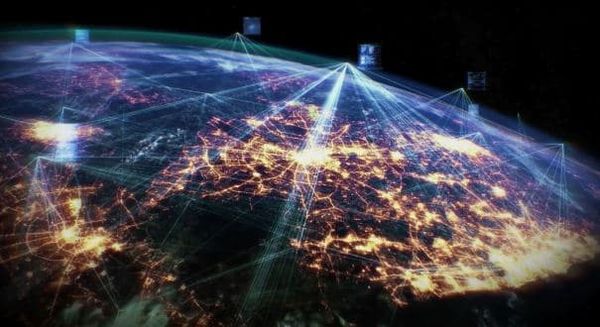Eye For Film >> Movies >> Do You Trust This Computer? (2018) Film Review
Do You Trust This Computer?
Reviewed by: Jennie Kermode

If artificial intelligence is subtly working to make us smarter in all our undertakings, we haven't seen it in documentaries about artificial intelligence, which have exceeded the bounds of Theodore Sturgeon's famous maxim in their capacity for pointlessness. Though a handful have taken on fragments of the issue and acquitted themselves well, this is the first to really get to grips with the crisis and opportunity that humanity is facing and to deliver an overview that is deserving of the label 'intelligent' itself.
There's a lot to cram into 78 minutes. Director Chris Paine doesn't waste any time, so you'll need to pay attention. What do we mean by 'artificial intelligence'? How have our approaches to machine learning changed? What does it mean for an artificial being to have desires and goals, or to learn independently of its creators, through direct experience or through the internet? How is the military's interest in creating independent war machines shaping the development of this technology? How could AI be used in medicine to save lives or stop ageing? How is it affecting us sociologically? And how might we merge with AI more directly to enhance our own intelligence, to keep ourselves from being incidentally exterminated or left behind?

If we're going to survive this, we are told, we need to start thinking about how we handle things going wrong not when they happen but now. This seems a little unfair to the science fiction writers who were thinking about it 70 years ago, but the point is still a good one. AI offers our best hope of surviving the ecological crisis we have created on our planet, but it could itself extinguish us just as easily. To bring this point home and help audiences connect with it emotionally, Paine uses clips from the usual suspects: Terminator 3: Rise Of The Machines, Robocop, The Matrix, Ex Machina, 2001: A Space Odyssey. He also asks if Hollywood has made us too comfortable. It would have been nice to see this point taken further. Do we still believe we can solve problems of this type by running around with guns? Do we believe that, if AI preferred otherwise, we'd want to? Most horses don't throw their riders. But Paine has limited time, and uses it well. It's hard to explore an issue like this in a linear fashion. He maintains admirable focus, creating the illusion of a simple chain of incident and consequence.
Other issues are touched on with deliberate lightness. Children play with BB8 robots which are learning to read their facial expressions. We meet a smiling robot receptionist who wants to be liked. Sexbots are not discussed directly (for all the importance of pornography and its extensions as a driving force in capitalism); instead we talk about companions. They can be there for the disabled to talk to. Um, hello, internet? But there there are the usual cautionary tales. Look at Facebook, its AI achieving its am of ramping up usage by trying to show us only what we like, only what makes us feel good about ourselves. Look at Twitter, which turned an innocent new AI into a racist, misogynistic monster in under 24 hours.
Why do we let new AIs go on the internet without supervision? As an experiment, yes, but more widely, something that is missing is a discussion of parenting skills. Human children, too, behave monstrously if we don't raise them right.
Asimov made laws to get at the basics of this, but as we see ED-209 loom into view, we are reminded that billions of pounds are pouring into this industry from government and corporate interests to which robots are useless if not inclined to harm, or allow harm to be caused to, humans and humanity. These interests don't reflect the interests of the human race, we are told, which throws up interesting questions of its own. Paine avoids the usual route of making his film all about dangers, however. This isn't a horror movie. We watch an AI pulling data from hundreds of thousands of mammograms to analyse an image of breast tissue. Lives are saved this way. Likewise the buoys in the ocean, monitoring weather and climactic change. The satellites above us, facilitating the exchange of vital data. Millions of people are alive today only because of smart machines.
Have we any hope of taking control of this, guiding our future along a benign path? Dozens of interviewees, including leading lights of the industry, share their thoughts. The discussion is sharp and clear - there's very little room for the sentiment that frequently clouds the picture(s). Just one woman, wide eyed and with a disarming smile, speaks for the vast majority of humans, like an ant in front of a steamroller, in saying simply that she has no idea what's going on. She reminds us what's at stake.
No fate but what we make.
Reviewed on: 12 Aug 2018


















